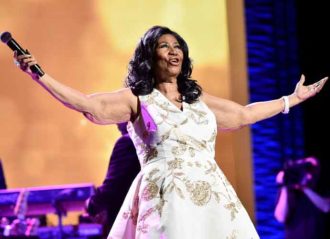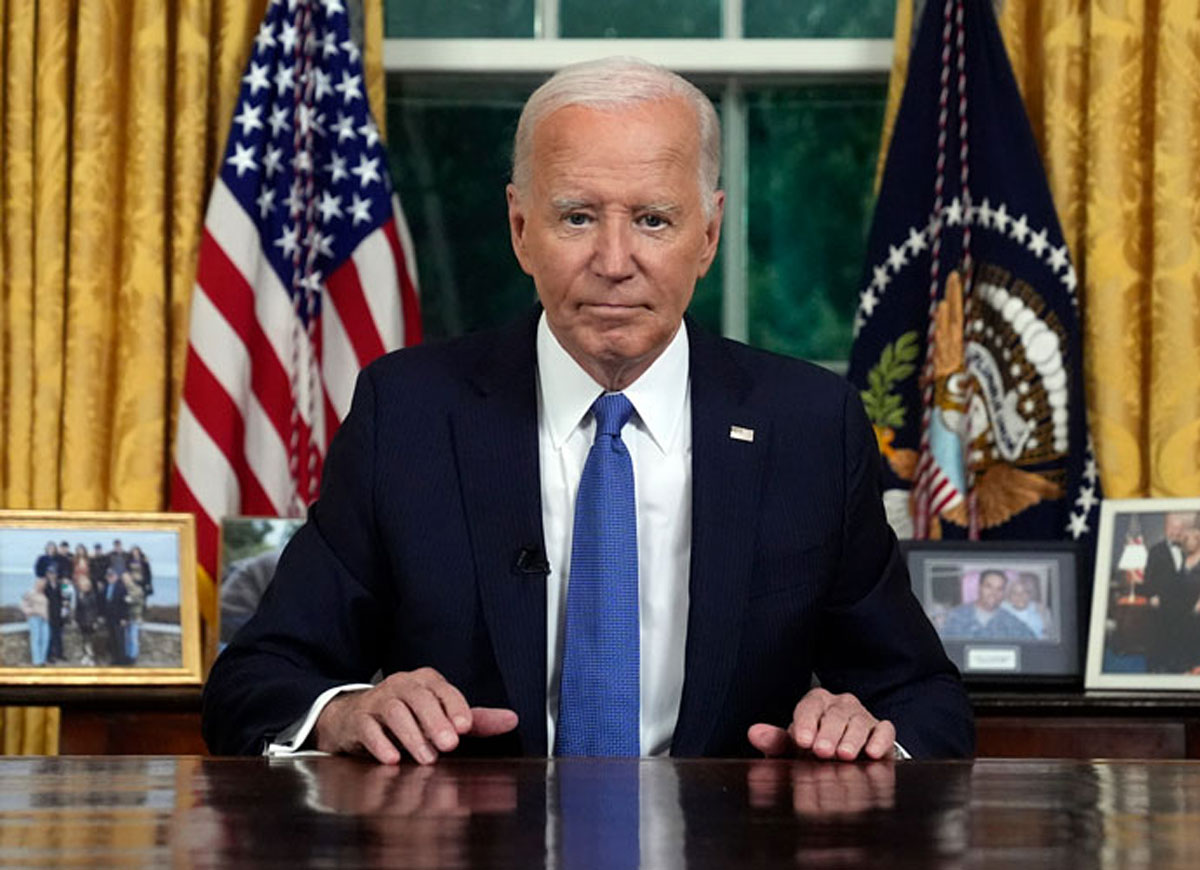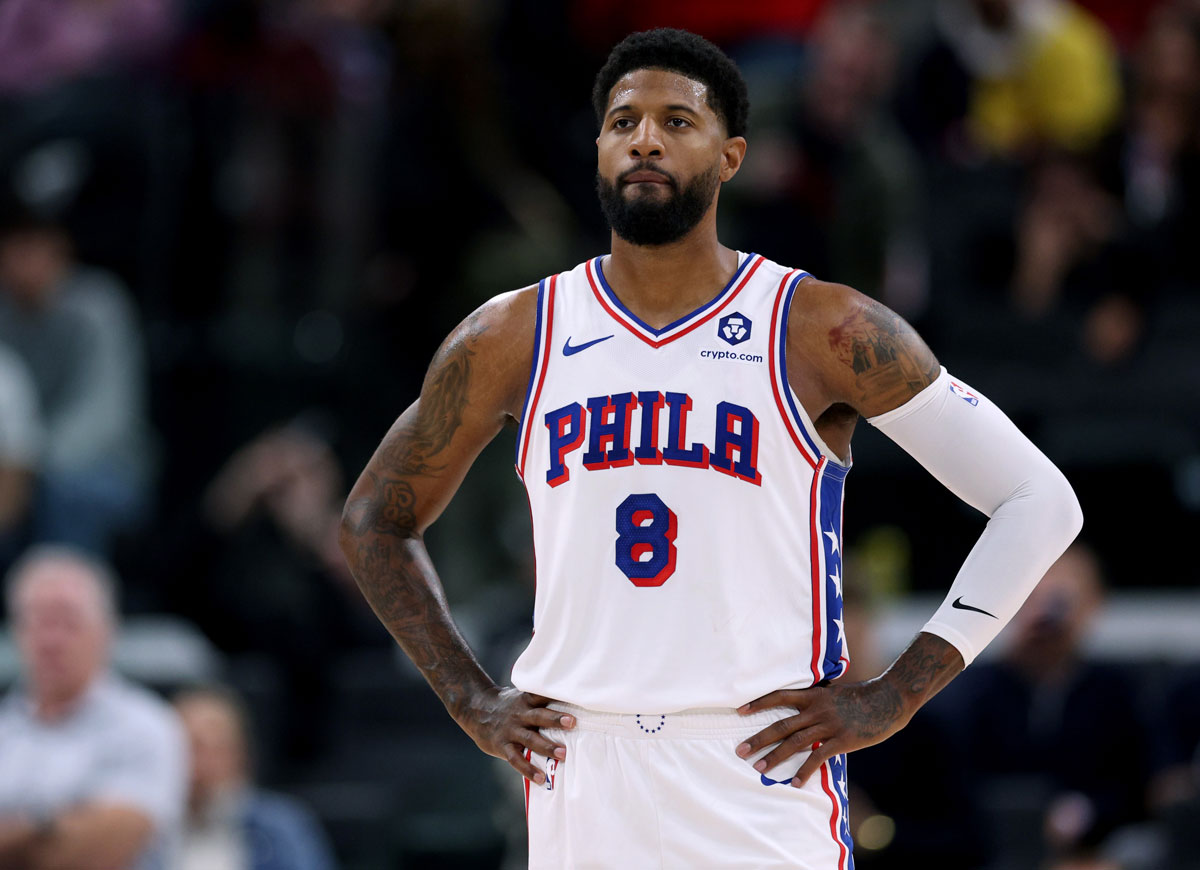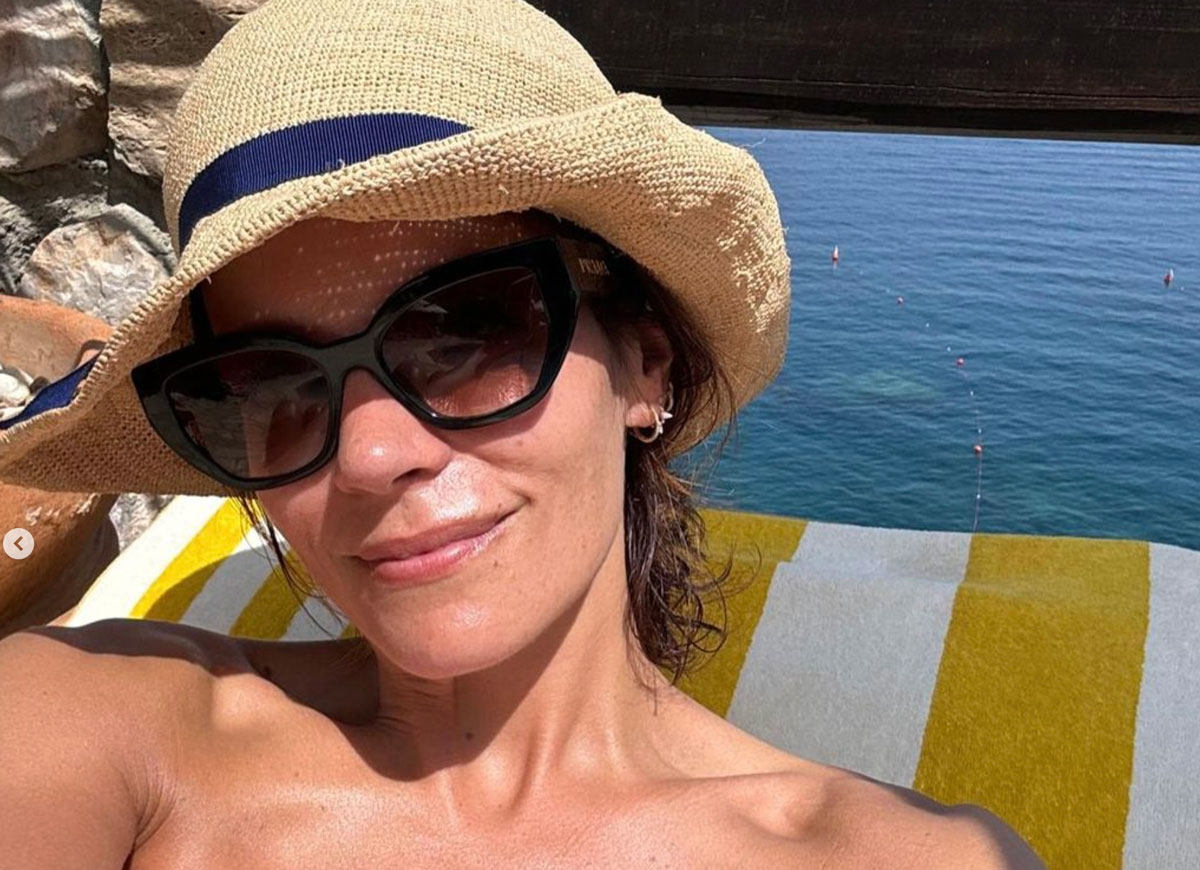Jim Gaffigan & Miranda Bailey On ‘You Can Choose Your Family, A New Era Of Films [VIDEO EXCLUSIVE]
Jim Gaffigan, the star of Miranda Bailey’s You Can Choose Your Family, believes the film will usher in a new era of movies.
“We live in an age where there’s the mega blockbuster,” Gaffigan told uInterview exclusively at South by Southwest in Austin, Texas. “We live in an age where there’s the eccentric indie, and I love both of those. But there is a return of the accessible comedy-drama with heart, and this is ushering in this new time period. If you will, the second John Hughes era — but not for kids. Not for pre-teens or post-teens or reteens. It’s an era for everyone.”
In the film, Gaffigan plays Frank, a father with two families who is being blackmailed by his son, who recently learned his secret. Gaffigan and Bailey enjoyed working on the film together, but it wasn’t without its challenges — especially during the ending scene.
“I think the end of the movie when it all kind of comes together and you have so many people in a crowd scene and so much blocking and so many things have to happen, and also so many people have to be hidden and just the timing, you know, getting that right, I think, was key to the movie being successful,” Bailey said. “So I think that was probably the hardest one to shoot particularly because we lost our location the day before we shot it and had to totally figure it out on a new location during lunch the day before it shot.”
For Gaffigan, ensuring that he played his character’s reaction to the unfolding of his lies was particularly daunting.
Oscars 2018: Best Dressed Slideshow!
“There was a build of it all coming undone, and so as an actor I was terrified because I didn’t want to play it broad, I didn’t want to play it cliche, because I think in reality, when horrible things happen to horrible people or they get exposed, what usually happens is you’re frozen,” Gaffigan said.
Though the scene was difficult, Gaffigan enjoyed playing an imperfect character.
“In the end the audience, you know, does not think, ‘Poor Frank,’” he said. “They’re kind of like, ‘Yeah, he kinda got his due,’ you know what I mean? But it was fun to play that. It was fun to, you know, as an instinct, as a human, you want to defend yourself. You want to defend your character, but it was also, yeah, you know, he’s called out on some of this. It’s a fun journey. It’s so fun to play flawed, particularly when you’re perfect in real life.”
Gaffigan said he found that the script balanced humor and seriousness, and he loved that it was very grounded.
“You know, there was a lot of humor, but it’s not, ‘Someone’s locked in the bathroom and there’s no toilet paper,’” Gaffigan said. “It’s none of that crap. It’s situational based humor with grounded characters, and that was very appealing.”
What is the plot of the film?
Miranda Bailey: You Can Choose Your Family is about a 17-year-old boy who finds out his father has a second family and he blackmails him. You know, it’s a fun — is it a rump?
Jim Gaffigan: I don’t know if it’s a rump. I feel like it’s a bit of a thriller. So we set up that there’s two families, we set up that there’s a son that is in a position of power over his father, and so some of it is you’ll have to watch.
What attracted you to the script?
JG: What I loved about the script was Frank, my character, he has two families, but through the course of the movie, he doesn’t justify it, but he explains how he ended up in this position. The script was very grounded. You know, there was a lot of humor, but it’s not, ‘someone’s locked in the bathroom and there’s no toilet paper.’ It’s none of that crap. It’s situational based humor with grounded characters, and that was very appealing. It was fun, it was fun to be a lead and to be handsome.
MB: Wanted by two women.
JG: Wanted by two women. Two fantastic women.
What was the most difficult scene for you to direct?
MB: Well I think the end of the movie when it all kind of comes together and you have so many people in a crowd scene and so much blocking and so many things have to happen, and also so many people have to be hidden and just the timing, you know, getting that right, I think, was key to the movie being successful. So I think that was probably the hardest one to shoot particularly because we lost our location the day before we shot it and had to totally figure it out on a new location during lunch the day before it shot.
What was the most difficult scene as an actor on this film?
JG: I think there were a couple moments, but it was the scene that Miranda talked about where it all played out, but there was a build of it all coming undone and so as an actor I was terrified because I didn’t want to play it broad, I didn’t want to play it cliche, because I think in reality, when horrible things happen to horrible people or they get exposed, what usually happens is you’re frozen. So what was great in that moment where it was all essentially these two families were exposed at the same time. In the end the audience, you know, does not think, ‘Poor Frank.’ They’re kind of like, ‘Yeah, he kinda got his due,’ you know what I mean? But it was fun to play that. It was fun to, you know, as an instinct, as a human, you want to defend yourself. You want to defend your character, but it was also, yeah, you know, he’s called out on some of this. It’s a fun journey. It’s so fun to play flawed, particularly when you’re perfect in real life.
What was your most memorable experience working on the film?
JG: Watching the movie I was surprised — there’s a lot of running. I was like, ‘There’s a lot of running.’ And I think my expectation, I mean, I was dealing with personal chaos in my everyday life, but I remember thinking, reading the script and going, ‘Alright, you know what, I gotta get in shape.’ And of course I didn’t. I mean, I’ve been saying that for 30 years, which is strange because I’m 31, but there were so many moments. I don’t know — you answer.
You don’t have to talk about me.
MB: This is just the first of our projects together, so I’ll look back and be like, ‘Remember when we made that first movie?’
JG: I’m like Leo [Di Caprio], and you’re [Martin] Scorsese. But he also did it with [Robert] De Niro or—
MB: You’re still Leo.
What’s your biggest takeaway from the film? JG: Here’s the thing. There is, you know, we live in an age where there’s the mega blockbuster. We live in an age where there’s the eccentric indie, and I love both of those. But there is a return of the accessible comedy-drama with heart, and this is ushering in this new time period. If you will, the second John Hughes era — but not for kids. Not for pre-teens or post-teens or reteens. It’s an era for everyone. Blue and red states.
RELATED ARTICLES
Get the most-revealing celebrity conversations with the uInterview podcast!



![Jim Gaffigan & Miranda Bailey On ‘You Can Choose Your Family, A New Era Of Films [VIDEO EXCLUSIVE]](https://cdn-o9.uinterview.com/wp-content/uploads/2018/03/Gaffigan.png)
 Click here for the In Memoriam: 50 Celebrities Who Died In 2018 Slideshow
Click here for the In Memoriam: 50 Celebrities Who Died In 2018 Slideshow



Leave a comment